
THE ROAD TO HEALTH: Vegan Alternatives for Meat Products and Sources of Vegetable Protein
Are you trying to limit the amount of meat in your diet? I’ve been trying for quite some time to make sure that products of plant origin constitute the largest part of what I eat. More and more scientific data confirm that it is extremely important for our health. In the third week of the #SmallSteps#BigChange challenge, I encourage you to partially eliminate meat products from your diet. Remember to keep it in line with the guiding principle of the challenge: take small steps that gradually bring you closer to your goal. Start by introducing, for example, 3 meatless days a week.
Vegan pâté, vegetable burger, and even a vegan steak. You can find more and more vegetable alternatives to meat in stores. Vegan restaurants with a plant-based menu are also gaining popularity. Due to the growing interest in this kind of nutrition, the market of available vegan meat substitutes offers a wide range of products, which are very similar to meat, both in taste and texture.
Vegan diet is becoming more and more popular every year. The motivations people have to adopt a vegan diet are different. They do it for health, ecology, or for ethical reasons. When switching to a vegan or vegetarian diet, you often ask me how to replace meat and where to get wholesome protein from in a meatless diet. Contrary to what you might think, it is not that difficult.
Protein in a vegan diet
Cutting down on the amount of meat in your diet will not be difficult for many of you. I know that there are many vegetarians and vegans here. However, when deciding to completely exclude animal products from the menu, you must be aware that obtaining certain nutrients from the diet may be more difficult. One of them is protein, and I would like to tell you about its plant substitutes today. I hope that the following information will be especially useful for you when composing your menu, so that your mainly plant diet is wholesome and brings the most benefits to your body.
Properly balancing a vegan diet in terms of micro- and macronutrients is more difficult, but it is not impossible! However, it is important to ensure the right amount of wholesome protein and supplementation of vitamins and minerals, the supply of which in such a diet is difficult. You should pay special attention to vitamins B12 and D, as well as calcium, iron and zinc.
Protein consists of individual amino acids and is a nutrient that primarily plays a building role in our body. Meat is an easily available and easily digestible source of wholesome protein, because it contains a complete set of essential amino acids. In the case of plant products, the content of these amino acids is not complete. There is a so-called limiting amino acid, that is, one that is in a short supply in a given protein source compared to the rest of the amino acids. It then limits the use of all amino acids in the process of building body proteins. However, these are different amino acids in individual plant foods. Therefore, the key word here is variety. It is enough to wisely combine different sources of plant proteins to ensure their proper absorption.
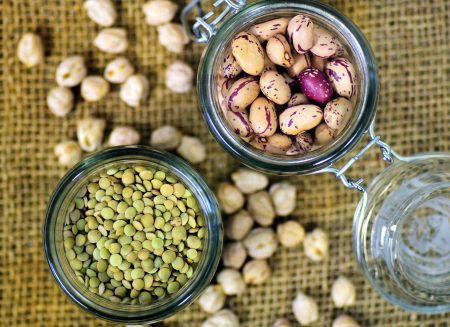
Alternative plant products
Vegetable protein can be found primarily in legumes, such as: beans, lentils, chickpeas and peas. They are used to prepare vegetable burgers or falafels. The soybean fermentation process is used to produce tofu and tempeh, which are widely used in a vegan diet. Protein-rich wholegrain cereal products include quinoa or amaranth, as well as seitan.
Seitan is produced in the process of washing away the starch from wheat flour. It therefore consists almost entirely of gluten. It perfectly imitates meat, but the protein is difficult to digest and hard to absorb.
The source of protein will also be nuts used in the production of plant-based drinks, such as almond milk and vegan cheeses. However, these are not the only dairy alternatives. Coconut yoghurt, coconut cream, vegan mozzarella or inactive yeast flakes imitating Parmesan cheese are now easily available and are a great substitute for dairy products. Vegan whipped cream? Yes, it’s possible! You only have to beat the coconut milk. Another product that you can whip and even prepare a vegan meringue from it is aquafaba, i.e. chickpea brine. It is an ideal replacement for chicken egg white, and can also be used to prepare vegan mayonnaise, sauces, butter, mousses, and vegan pastries. Remember that such tricks are not for herbivores only, but for all lovers of culinary novelties and those who simply like to have a varied diet.
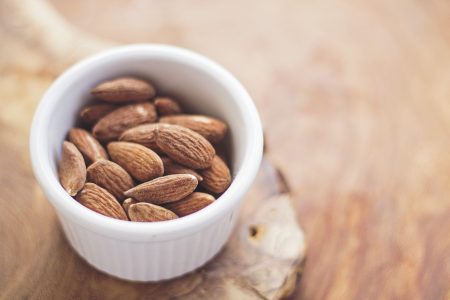
Vegan protein supplements
For people who follow an intense workout routine, plant-based protein supplements are also a great alternative. They contain a rich, complete profile of amino acids, thanks to which they strongly support muscle regeneration. There are preparations based on pea protein or rice, hemp, and soy protein. They are good not only for people on a vegan diet, but also for those who are lactose intolerant or allergic to cow’s milk protein. You can find my Foods By Ann vegan protein supplements HERE.
As you can see, a vegan diet can ensure an adequate supply of protein if it is varied and well-balanced. However, remember that not every vegan product has a good composition. Choose unprocessed products and read labels!?
Bibliography:
- Afshin A, Micha R, et al.. Consumption of nuts and legumes and risk of incident ischemic heart disease, stroke, and diabetes: a systematic review and meta-analysis. Am J Clin Nutr. 2014;100(1):278–288.
- Berrazaga I, Micard V. et al. The Role of the Anabolic Properties of Plant- versus Animal-Based Protein Sources in Supporting Muscle Mass Maintenance: A Critical Review Nutrients 2019; 11(8):1825.
- Mariotti F, Gardner C.D, Dietary Protein and Amino Acids in Vegetarian Diets – A Review Nutrients. 2019; 11(11):2661.
- Song M, Fung T.T., et al. Association of Animal and Plant Protein Intake With All-Cause and Cause-Specific Mortality. JAMA Intern Med. 2016;508(7496):S66.





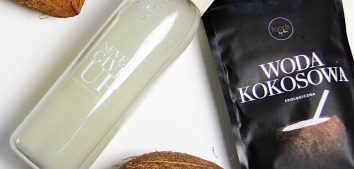
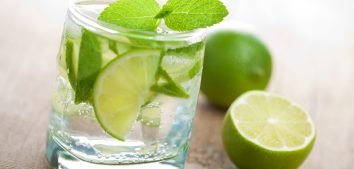
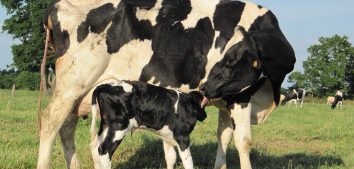

Comments No Comments
Join the discussion…